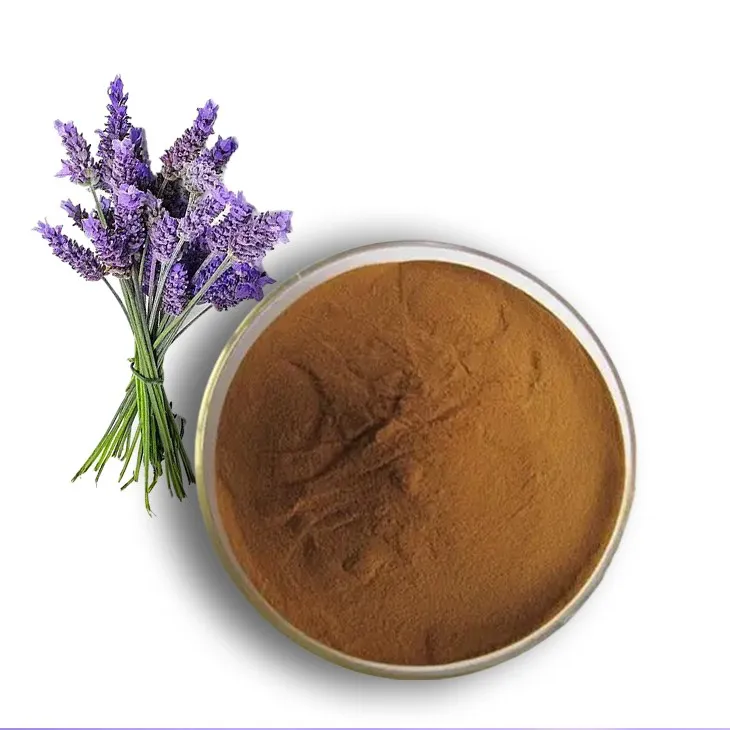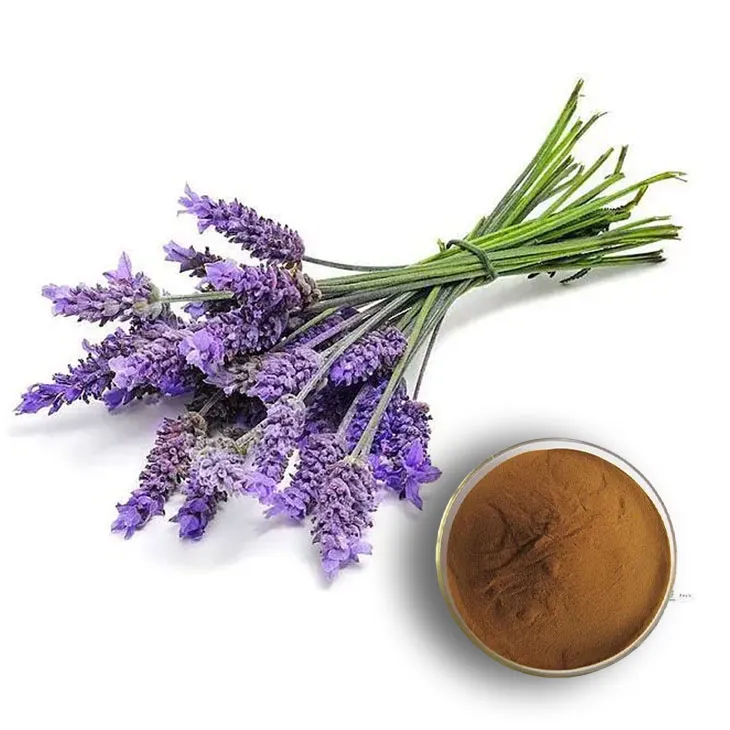- 0086-571-85302990
- sales@greenskybio.com
Use lavender extract? Make sure you source from sustainable suppliers!
2024-12-11

1. Introduction
Lavender Extract has found its way into a diverse range of industries, from cosmetics and perfumery to food and pharmaceuticals. Its alluring scent, as well as its potential therapeutic properties, make it a highly sought - after ingredient. However, the origin of this Lavender Extract is a crucial factor that often goes overlooked. Sustainable sourcing of Lavender Extract is not only an ethical choice but also one that has far - reaching implications for the environment, local communities, and the long - term availability of this precious resource.

2. The Environmental Significance of Sustainable Sourcing
2.1. Biodiversity Conservation
Lavender fields are often home to a variety of flora and fauna. When lavender is sourced sustainably, it means that the farming practices are designed to minimize the impact on the surrounding ecosystem. For example, traditional and sustainable lavender farming may involve the preservation of hedgerows and natural waterways. These areas serve as habitats for numerous species, including insects, birds, and small mammals. By protecting these habitats, we are contributing to the overall biodiversity of the region. In contrast, non - sustainable farming methods may involve the clearing of large areas of land without regard for the existing wildlife, leading to a loss of habitat and a decline in species numbers.
2.2. Soil Health
Sustainable lavender suppliers are more likely to use farming practices that promote soil health. Lavender is a relatively hardy plant, but it still requires well - nourished soil to thrive. Sustainable farming techniques may include crop rotation, the use of organic fertilizers, and soil conservation measures. Crop rotation, for instance, helps to prevent soil depletion by alternating the types of crops grown in a particular field. This allows the soil to regain its nutrients and maintain its structure. Organic fertilizers, such as compost or manure, enrich the soil without introducing harmful chemicals. In the long run, healthy soil not only benefits the lavender plants but also helps to sequester carbon, contributing to the fight against climate change.
2.3. Water Conservation
Water is a precious resource, and in many regions where lavender is grown, water availability can be a concern. Sustainable lavender suppliers are conscious of water conservation. They may use drip irrigation systems, which deliver water directly to the roots of the plants, minimizing evaporation. Additionally, they may monitor soil moisture levels to ensure that water is only applied when necessary. This is in contrast to some non - sustainable farming operations that may over - irrigate, leading to water wastage and potential water scarcity issues in the surrounding area.

3. Social Aspects of Sustainable Sourcing
3.1. Support for Local Communities
When lavender extract is sourced from sustainable suppliers, it often has a positive impact on local communities. In many cases, lavender farming is a family - run or small - scale business. By purchasing from these sustainable suppliers, companies are providing economic support to these local farmers. This support can translate into stable incomes for families, allowing them to invest in their farms, educate their children, and improve their quality of life. For example, in some rural areas, the income from lavender farming has enabled the building of local schools and the improvement of healthcare facilities. Additionally, sustainable lavender farming can create employment opportunities within the community, not only in farming but also in related industries such as lavender processing and tourism.
3.2. Fair Labor Practices
Sustainable suppliers are more likely to adhere to fair labor practices. This means that workers involved in lavender farming and extraction are treated fairly. They are paid a living wage, work in safe and healthy conditions, and are not subjected to exploitation. In some regions, lavender farming can be labor - intensive, especially during the harvest season. Sustainable suppliers ensure that workers have access to proper training, protective equipment, and reasonable working hours. This not only benefits the workers themselves but also contributes to a more positive and sustainable social environment within the community.
3.3. Cultural Preservation
Lavender has cultural significance in many regions where it is grown. Sustainable sourcing helps to preserve these cultural traditions associated with lavender. For example, in some areas, there are traditional methods of lavender harvesting and distillation that have been passed down through generations. By supporting sustainable suppliers, we are also helping to keep these cultural practices alive. This can include the preservation of local festivals and events related to lavender, which are an important part of the community's identity.

4. Economic Benefits of Sustainable Sourcing
4.1. Long - term Availability and Price Stability
By sourcing lavender extract from sustainable suppliers, companies can ensure the long - term availability of this ingredient. Sustainable farming practices help to maintain the health and productivity of lavender fields, reducing the risk of crop failures and shortages. This, in turn, can lead to more stable prices for lavender extract in the market. In contrast, non - sustainable farming methods that deplete the soil or over - exploit the resource may lead to fluctuating supplies and volatile prices, which can be a challenge for industries relying on lavender extract.
4.2. Market Reputation and Consumer Appeal
In today's market, consumers are increasingly conscious of environmental and social issues. Products that are sourced sustainably are often more appealing to consumers. When a company can demonstrate that its lavender extract is sourced from sustainable suppliers, it can enhance its market reputation. This can lead to increased brand loyalty and potentially higher sales. For example, a cosmetic brand that uses sustainably sourced lavender extract can market itself as an environmentally and socially responsible company, attracting consumers who are willing to pay a premium for products with a positive impact.
4.3. Investment and Business Opportunities
Sustainable lavender sourcing can also open up new investment and business opportunities. As the demand for sustainably sourced products grows, there may be opportunities for investors to support sustainable lavender farming projects. This can include providing capital for the expansion of small - scale farms, the development of more efficient irrigation systems, or the establishment of new lavender - based products. Additionally, businesses that are involved in sustainable lavender sourcing can form partnerships with other like - minded companies, creating a network of sustainable businesses that can collaborate on research, marketing, and distribution.
5. Ensuring High - Quality Lavender Extract
Sustainable suppliers are often more committed to ensuring the high - quality of their lavender extract. They are likely to follow strict quality control procedures throughout the farming, harvesting, and extraction processes. Quality control in sustainable lavender production starts with the selection of the right lavender varieties. Different varieties of lavender have different chemical compositions and aromas, and sustainable suppliers will choose the varieties that are best suited for the intended use of the extract. For example, for use in high - end perfumery, they may select a variety with a more complex and refined scent.
During the farming stage, sustainable suppliers monitor the growth of the lavender plants closely. They ensure that the plants are not exposed to excessive pesticides or fertilizers that could affect the quality of the extract. Instead, they rely on natural pest control methods and organic fertilizers whenever possible. When it comes to harvesting, the timing is crucial. Lavender should be harvested at the optimal time to capture its maximum potency. Sustainable suppliers have the expertise to determine the exact moment for harvest, usually based on the stage of flower development and the weather conditions.
After harvesting, the extraction process is carefully carried out. Sustainable suppliers may use traditional or modern extraction methods, but they always strive to preserve the integrity of the lavender's active compounds. This may involve using gentle extraction techniques such as steam distillation or supercritical fluid extraction. These methods are less likely to damage the delicate aromatic and therapeutic components of the lavender, resulting in a higher - quality extract.
6. How to Identify Sustainable Suppliers
6.1. Certification and Standards
One of the most reliable ways to identify sustainable lavender suppliers is through certification. There are several recognized certifications in the agricultural industry that indicate sustainable farming practices. For example, organic certifications ensure that the lavender is grown without the use of synthetic pesticides and fertilizers. Fairtrade certifications guarantee that the farmers are paid a fair price for their produce and that labor standards are met. Look for suppliers who can provide evidence of these certifications, as they are a clear indication of their commitment to sustainability.
6.2. Transparency in the Supply Chain
A sustainable supplier should be transparent about their supply chain. They should be able to provide details about where the lavender is grown, how it is farmed, and what extraction methods are used. This transparency allows companies and consumers to make informed decisions. For example, a supplier who is open about their water - use practices or their efforts to support local communities is more likely to be a sustainable option. Transparency can also be demonstrated through traceability systems, where it is possible to track the origin of the lavender extract from the field to the final product.
6.3. Reputation and References
Researching the reputation of a lavender supplier is another important step. Look for reviews from other companies that have used their products or from industry experts. A supplier with a good reputation is more likely to be sustainable. Additionally, ask the supplier for references. They should be able to provide contact information for other customers or partners who can vouch for their sustainability practices.
7. Conclusion
In conclusion, when considering the use of lavender extract, it is essential to source from sustainable suppliers. The environmental, social, and economic benefits of sustainable sourcing are numerous and far - reaching. By choosing sustainable suppliers, we can protect the ecosystem, support local communities, ensure long - term availability of high - quality lavender extract, and enhance our market reputation. Identifying sustainable suppliers may require some effort, but through certifications, transparency, and reputation research, it is possible to make an informed choice. As the demand for sustainable products continues to grow, the importance of sustainable lavender sourcing will only increase, and it is up to all of us, whether as consumers or businesses, to make the right choice for a more sustainable future.
FAQ:
Q1: Why is it important to source lavender extract from sustainable suppliers?
Sourcing from sustainable suppliers is crucial for several reasons. Environmentally, sustainable practices ensure the protection of lavender - growing habitats, such as conserving water, soil quality, and biodiversity. Socially, it can support local communities involved in lavender farming, providing fair wages and good working conditions. Economically, it promotes long - term viability of the lavender industry by preventing over - exploitation and ensuring a stable supply of high - quality lavender extract.
Q2: How can one identify a sustainable lavender extract supplier?
There are several ways. Look for certifications such as organic or fair - trade certifications, which often indicate sustainable practices. Research the supplier's farming methods, for example, if they use water - efficient irrigation, natural pest control, and sustainable land management. Also, check if they have good relationships with local communities, such as supporting local education or infrastructure projects.
Q3: What are the environmental benefits of sustainable sourcing of lavender extract?
The environmental benefits are significant. Sustainable sourcing helps in conserving water as lavender farming can be water - intensive. It also protects soil health by using organic fertilizers and avoiding over - tilling. Moreover, it promotes biodiversity by maintaining natural habitats around the lavender fields, which can support a variety of insects, birds, and other wildlife.
Q4: How does sustainable sourcing of lavender extract benefit local communities?
Sustainable sourcing benefits local communities in multiple ways. It provides stable employment opportunities with fair wages. It can also lead to the development of local infrastructure as successful and ethical suppliers may invest in the community. Additionally, it may support local cultural traditions related to lavender farming and processing, which can help in preserving the community's identity.
Q5: Are there any economic advantages for businesses in sourcing lavender extract from sustainable suppliers?
Yes, there are. Sourcing from sustainable suppliers can enhance a business's reputation, making it more attractive to environmentally and socially conscious consumers. It can also ensure a more stable and high - quality supply in the long - run, reducing the risks associated with supply shortages or quality issues. Moreover, in some cases, sustainable sourcing may lead to cost savings through more efficient farming and processing methods.
Related literature
- Sustainable Sourcing of Botanical Extracts: A Case Study of Lavender"
- "The Impact of Sustainable Lavender Farming on Ecosystems and Communities"
- "Lavender Extract: Ensuring Sustainability in the Supply Chain"
- ▶ Hesperidin
- ▶ Citrus Bioflavonoids
- ▶ Plant Extract
- ▶ lycopene
- ▶ Diosmin
- ▶ Grape seed extract
- ▶ Sea buckthorn Juice Powder
- ▶ Fruit Juice Powder
- ▶ Hops Extract
- ▶ Artichoke Extract
- ▶ Mushroom extract
- ▶ Astaxanthin
- ▶ Green Tea Extract
- ▶ Curcumin
- ▶ Horse Chestnut Extract
- ▶ Other Product
- ▶ Boswellia Serrata Extract
- ▶ Resveratrol
- ▶ Marigold Extract
- ▶ Grape Leaf Extract
- ▶ New Product
- ▶ Aminolevulinic acid
- ▶ Cranberry Extract
- ▶ Red Yeast Rice
- ▶ Red Wine Extract
-
Coix Seed Extract
2024-12-11
-
Lavender Extract
2024-12-11
-
Chia Seed Powder
2024-12-11
-
Oat Straw Extract Powder
2024-12-11
-
Lily extract
2024-12-11
-
Citrus Aurantii Extract
2024-12-11
-
Marigold Extract
2024-12-11
-
Saw Palmetto Extract
2024-12-11
-
Stevia Extract
2024-12-11
-
Eucommia Ulmoides Extract
2024-12-11




















